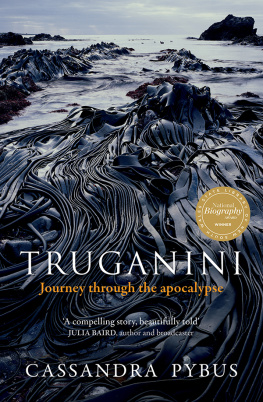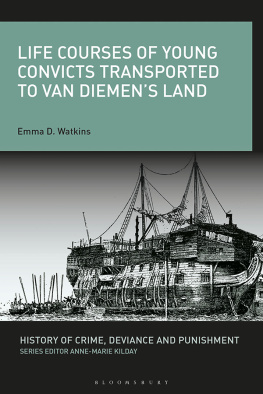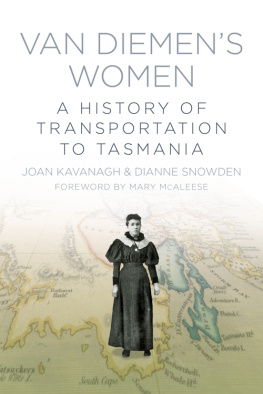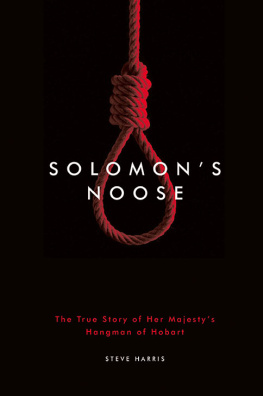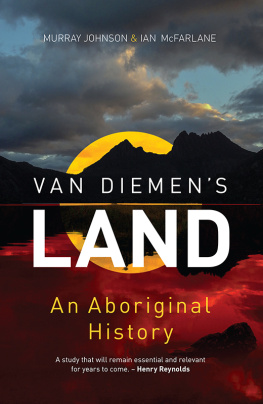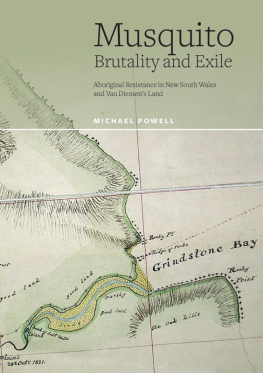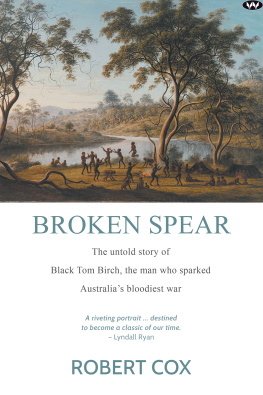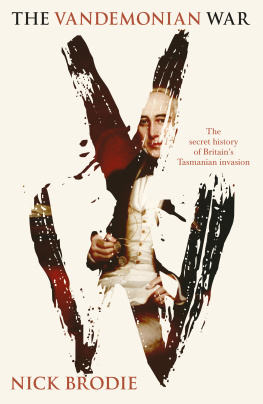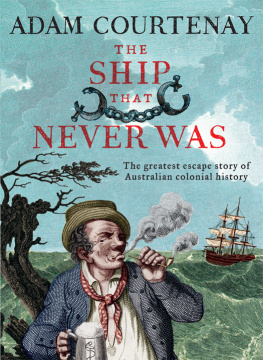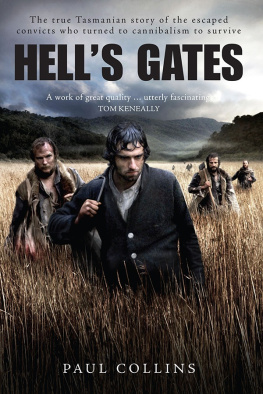American Citizens, British Slaves
American Citizens,
British Slaves
Yankee Political Prisoners in
an Australian Penal Colony
18391850
Cassandra Pybus and
Hamish MaxwellStewart
And Cain said unto the L ORD , My punishment is greater than I can bear.
Behold, thou hast driven me out this day from the face of the earth; and from thy face shall I be hid; and I shall be a fugitive and a vagabond in the earth; and it shall come to pass, that every one that findeth me shall slay me.
And the L ORD said unto him, Therefore whosoever slayeth Cain, vengeance shall be taken on him sevenfold. And the L ORD set a mark upon Cain, lest any finding him should kill him.
And Cain went out from the presence of the L ORD , and dwelt in the land of Nod, on the east of Eden.
Genesis 4: 13-16
Contents
Illustrations
Figures
Plates (following page 80)
Acknowledgements
This project was assisted by an Australian Research Council large grant and a research grant from the Canadian Department of External Affairs. Heartfelt thanks are due to Elinor Morrisby, Tom Dunning, Ian Duffield, Lyn Rainbird and Monica ONeill for their invaluable assistance on this project. For additional research assistance, thanks to Patricia Kennedy of the National Archives of Canada; Tony Marshall and Gillian Winter of the Tasmaniana Library; Robyn Eastley and the staff of the Archives Office of Tasmania; Theresa Regnier of the Talman Collection at the University of Western Ontario; Terry Prior, curator of the Oswego Museum; Ron Ridley, curator at Fort Henry, Kingston; the staff of the Mitchell Library in the State Library of New South Wales; the staff of the Niagara Historical Society, Lockport, and the staff of the Public Records Office in England. Our gratitude for their help and encouragement to Beverley Boissery, Ramsay Cook, Colin Duquemin, Brian Petrie, Colin Read, Chris and Pat Raible, Barry Wright, Margaret Garber in Canada; Stuart Scott, Robert and Jeannie Brennan, Sheila Weinbach in the United States; Raymond Evans, Stefan Petrow, Peter Chapman, David Young, Brett Noble, Sue Hood in Australia; and our colleagues at the University of Tasmania.
Cassandra Pybus
Hamish Maxwell-Stewart
Authors Note
In attempting to construct a single coherent narrative of the experience of the ninety-two Patriots transported to Van Diemens Land, we have drawn primarily on the autobiographical testimony of those few who wrote accounts of their political engagements, their trials and their subsequent exile. Seven book-length accounts were published in the United States between 1843 and 1850. These narratives are: Benjamin Wait, Letters From Van Diemans Land Written During Four Years Imprisonment for Political Offences Committed in Upper Canada; Caleb Lyon (ed.), Narrative and Recollections of Van Diemans Land During Three years Captivity of Stephen S. Wright; Linus Miller, Notes of an Exile in Van Diemans Land; Samuel Snow, An Exiles Return; Robert Marsh, Seven Years of My Life; Daniel D. Heustis, A Narrative of the Adventures and Sufferings of Captain Daniel Heustis; William Gates, Recollections of Life in Van Diemans Land. Unless otherwise specified, the quotations within the text are taken from these narratives and the page numbers refer to the original publications. The idiosyncrasies of original text have been maintained throughout, including the consistent misspelling of Van Diemens Land.
In addition to the published narratives, we have drawn on the unpublished letters and diaries of Elijah Woodman, held in the Woodman Papers at the University of Western Ontario; the letters of John Tyrrell, held in the Fred Landon Papers at the University of Western Ontario; the diary of Aaron Dresser Jr held in the National Archives of Canada; a letter from James Gemmell first published in the Plebeian newspaper and reprinted in the Jeffersonian; and letters from John Gilman, Elizur Stevens and Alvin Sweet held in the Mackenzie-Lindsey Papers in the Archives of Ontario. With the exception of the letter from James Gemmell, which is most probably the work of someone else, all of these sources are authentic first-person narratives, although the later narratives sometimes cannibalise earlier publications, notably William Gates, Recollections of Life in Van Diemans Land, which borrows liberally from the narrative of Robert Marsh.
For the most part the Patriot narratives have a high degree of verisimilitude and historical veracity. That said, the Patriots should not be considered as entirely reliable narrators of their experience, especially in their published accounts. In the growing literature on the convict narratives a recurrent theme is the problematic nature of the convict voice, and the Patriot narratives are a case in point. The proselytising purpose was often quite overt, especially in the narratives of Robert Marsh and Stephen Wright. The cruelty of the British system and the venality of imperial officials are the dominant themes of all seven books. In their political intent and their emphasis on physical brutality, the Patriot narratives echoed the highly effective slave narratives which were published at much the same time, but there was more to the Patriots political construction of themselves than brutalised victims. While the emphasis of the slave narrative was a catalogue of horror inflicted upon the passive body of the African, this could not have the same political impact for white, often middle-class, Yankees such as the Patriots. No white American male could be positioned in the public perception as the abject victim of imperialist task-masters, cruelly enduring the indignity of being treated like a dog. As a result there is a crucial tension in the narratives between the vivid recreation of the systematic degradation and brutality of convict life and the presentation of their superior American manliness and their republican virtue.
The Patriot narratives remain the most important body of convict texts in existence. While they are to be read and interpreted with a degree of caution, they are an invaluable window into the everyday experience of many thousands of mute men and women forced to endure calculated cruelty on the fatal shore.
Conversions
Length
1 foot = 30.5 cm
1 yard = 0.9 m
1 rod = 5.0 m
1 mile = 1.6 km
Mass
1 ounce (oz) = 28.3 g
1 pound (lb) = 454 g
1 hundredweight (cwt) = 50.8 kg
Area
1 acre = 0.40 ha
Volume
1 pint = 568 mL
1 quart = 1.1 L
Food energy
1 calorie = 4.2 kJ
Currency
There were 12 pennies (d) in 1 shilling (s), and 20 shillings in 1 pound (). Sums such as 2s and 2s 6d were often written as 2/- and 2/6.
Introduction
Still their columns continued filling up in the rear till the river banks, fields and woods, appeared alive with the red coats. Soon after, they formed in battle array, displaying their numbers to as great advantage as possible, and with what pomp and parade they were masters of, to strike dismay into the bosoms of our little band. instead of being frightened from our wits, and going out upon knees and imploring their gracious clemency, we strengthened each others hearts with kind words and valiant councels, it was a wonderment to her gracious majestys hirelings, that the handful of rebels were so presumptious as to entertain the idea of resisting those who had come down like a swarm of locusts to devour us from the face of the earth. [21-2]


